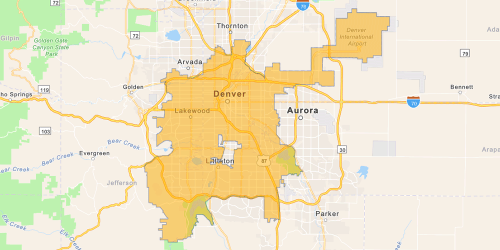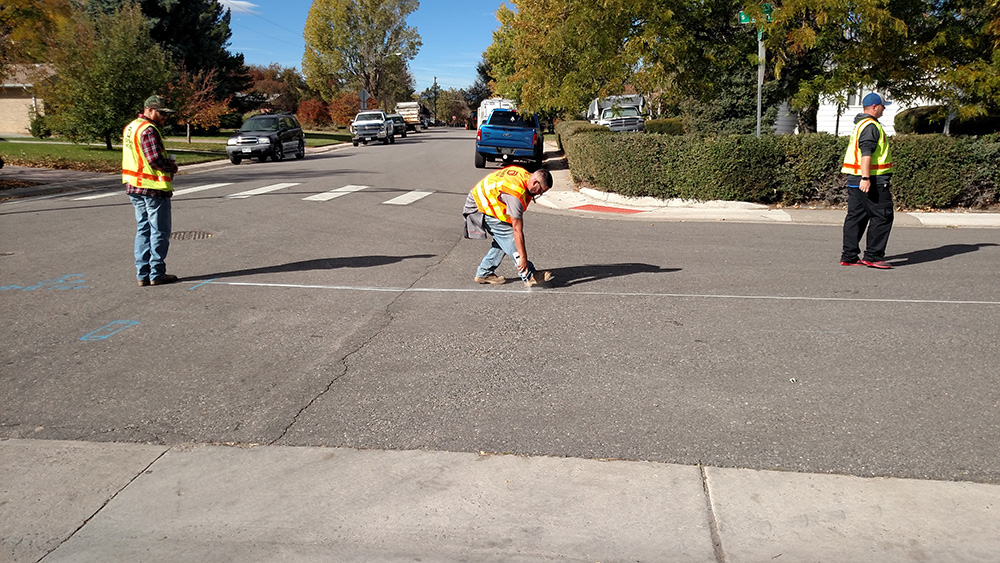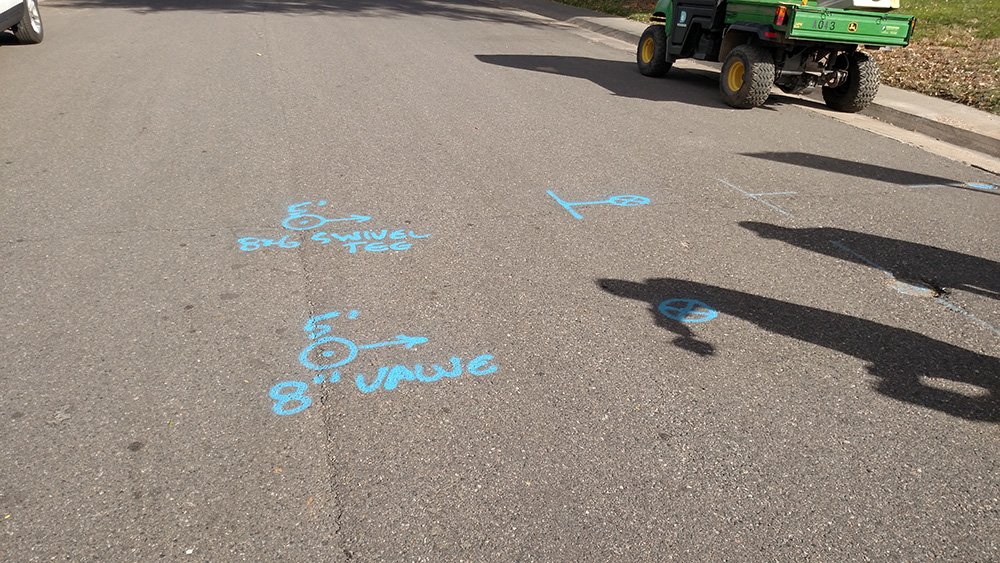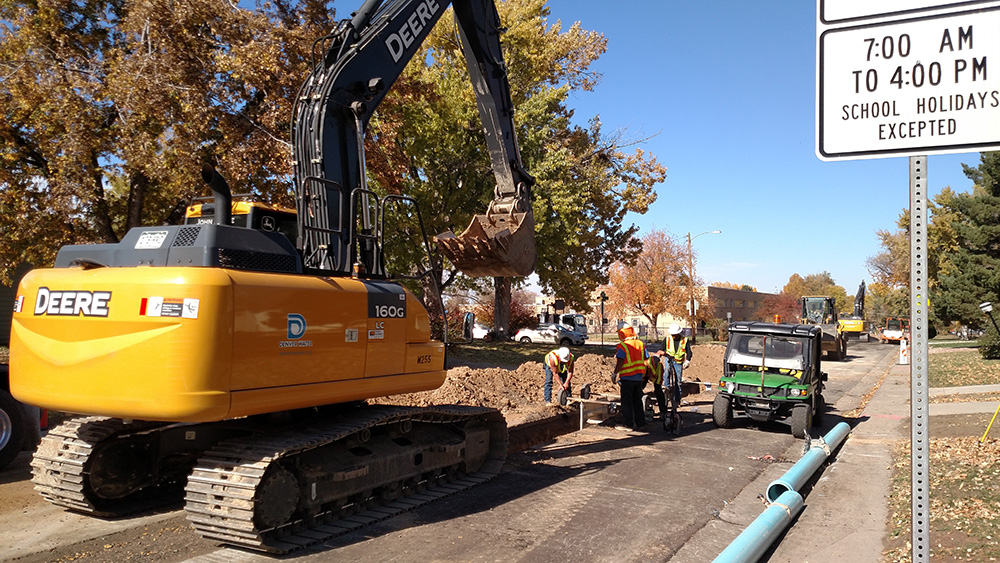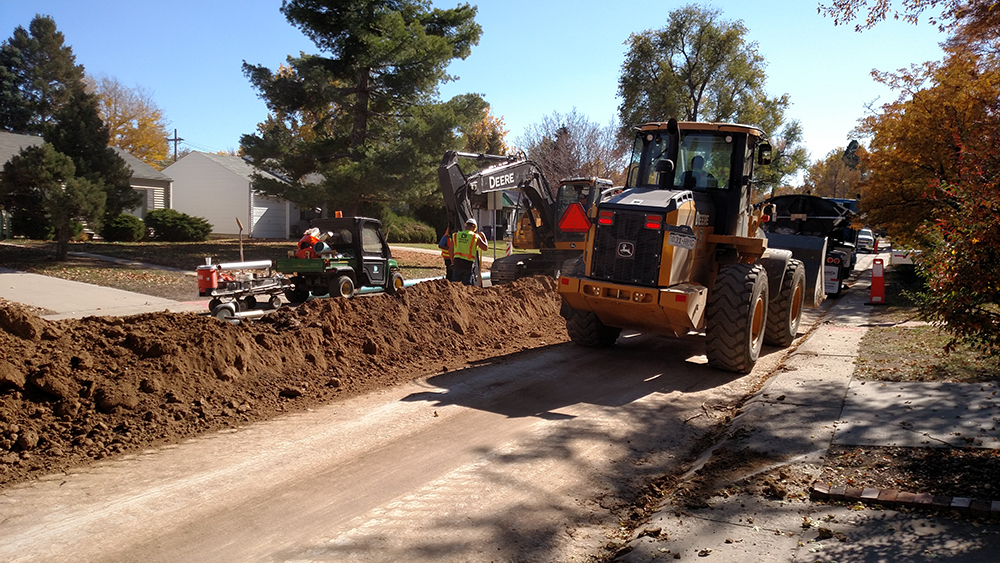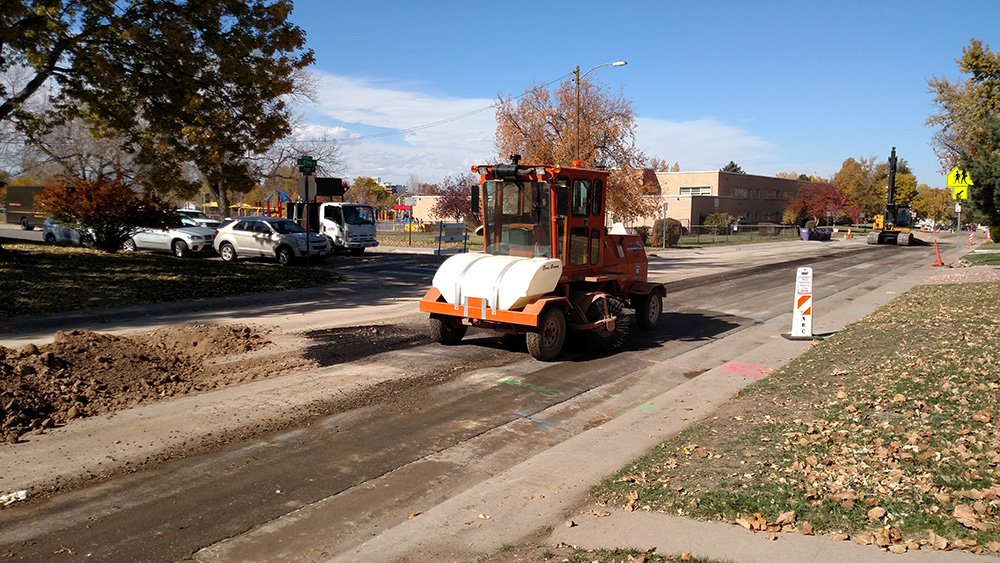Denver Water replaces water mains for various reasons, including repairing or avoiding main breaks, replacing corroded pipe, alleviating water quality problems, increasing available hydrant flow and improving area delivery.
Denver Water cares about public health and will replace any customer-owned lead service line with a copper water line, at no direct charge to the customer, when discovered during a project. Customers who have lead service lines that are not encountered during pipe replacement work are enrolled in the Lead Reduction Program.
Check out our map of current projects and status information*
*If you want to view the larger map or the map isn’t loading properly please launch project map in new window. We suggest viewing the map in Google Chrome.
Pipe programs
$130 million
80,000
3,000
1890s
Why it's important
The water distribution system contains more than 3,000 miles of water mains, and Denver Water crews install or replace an average of 80,000 feet of pipe a year with a goal of replacing 140,000 feet of pipe a year by 2026.
Replacements are done for various reasons, including repairing or avoiding main breaks, replacing corroded pipe, alleviating water quality problems, increasing available hydrant flow and improving area delivery. All of these are important to maintaining the system that delivers your water.
How it impacts our customers
When Denver Water is working in your neighborhood, you will receive notification with project details and contact information. Every improvement and replacement project is different because of the conditions at the project site, but there are similar activities you can expect to see during each phase.
Phases and timeline
Before work begins
-
Denver Water will mail letters with information about the project to directly impacted customers.
-
Approximately one week before work begins, Denver Water will:
-
Survey and use temporary blue paint or stakes to mark the alignment of water services.
-
Contact other utility companies to mark the locations of their buried facilities. (Surveyors will go on to customer property to locate and mark where the gas, water, electricity and any other utility lines are buried underground.)
-
-
24-48 hours before the project starts, Denver Water will:
-
Place “No Parking” signs in the work area. Street parking will not be available during working hours and vehicles left in the “No Parking” zone may be subject to tow. Parking is permitted after work hours to allow for overnight parking.
-
Place orange stormwater management devices that will collect sediment flowing toward stormwater drains.
-
Store equipment and material in the project area and along adjoining side streets.
-
Park a project headquarters trailer nearby for project personnel.
-
During construction
-
Road closures are likely. Detour signage will direct through-traffic around the construction area, while local access will be maintained for residents and businesses.
-
Denver Water will work with waste collectors and delivery drivers to ensure regular operations can continue. If you have a large delivery or special circumstances you are unsure about, please speak with our on-site construction crew so they can work directly with you.
-
Work in the right-of-way will include digging, cutting, excavating and pipe installation, which will require the use of heavy equipment.
-
Water outages are likely and typically last for a few hours. Denver Water will provide a notice with the date and time of the planned water outage on the front door of impacted properties at least 24 hours in advance of the planned water outage. While unlikely, emergency water shut-offs may also occur.
-
Once the new water pipe is installed, the crew will test the pipe to make sure there are no leaks. Denver Water’s lab will test the water in the new pipe to verify it is safe to drink.
-
During testing, water will run through the pipe and into the storm sewer for several hours to clear all debris from the new pipe.
-
Although Denver Water makes every effort to ensure the new main is free from sediment, you may notice a reddish discoloration in your water caused by non-hazardous sediment that normally settles at the bottom of the pipes over time. If this happens, run cold water for a few minutes from the outside hose spigot or the lowest point in your home, and clean your faucet aerators.
-
Disclaimer: Dirt or debris can enter water lines when crews shut off water service while performing routine water system operations. To prevent damage to water-using appliances, consider disconnecting or turning off ice makers, washing machines, dishwashers, sprinkler systems and filtration systems before water service is shut off. Denver Water is not responsible or liable for damage to your property resulting from pressure changes or water service being shut off.
-
-
After Denver Water’s lab confirms the water is safe to drink, the crew will begin connecting homes to the new water pipe.
-
The connection requires a brief water outage. Each homeowner will be notified of the service interruption, with an approximate time for the water to be turned back on.
-
For a typical copper service line connection, water should only be off for 15 to 25 minutes. (Lead service line replacements will require a longer service interruption. See section about lead service lines replacements below.)
-
Crews will flush the outside spigot of your property following a service line connection.
-
After work is complete at each property, we recommend running cold water for a few minutes to clear any debris before consuming the water.
-
-
After all properties are connected to the new water pipe, crews will replace fire hydrants along the street. In some cases, this may require excavation in yards.
-
Finally, crews will connect the new water pipe to existing Denver Water infrastructure, typically in an intersection. This work will require a water outage. Affected properties will be notified 24 hours in advance.
When crews find customer-owned lead service lines
-
We will replace any customer-owned lead service line with a copper water service line at no direct charge to the customer.
-
We will contact the homeowner and schedule the replacement.
-
Note: Someone over the age of 18 must be home during the replacement to provide access to the water connection inside the home.
-
Crews will flush the new service line and provide post-replacement instructions.
-
How to flush your faucets after construction: Lead flushing instructions.
-
Afterward
-
Crews will clean up, move their equipment and temporarily patch any damaged pavement.
-
Our contractor will return, as weather and schedules permit, to complete permanent pavement restoration.
-
Stormwater management devices will remain positioned in front of storm drains to collect sediment until the street is paved and landscape is restored. This could mean the stormwater management devices may remain positioned in front of storm drains for several months.
-
Impacted landscaping will be restored to its pre-construction condition when temperatures are suitable.
-
Customers are responsible for watering and caring for restored landscaping.
What you might see during the work
Tip: Click pictures to see captions.

